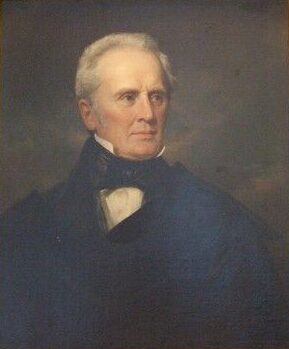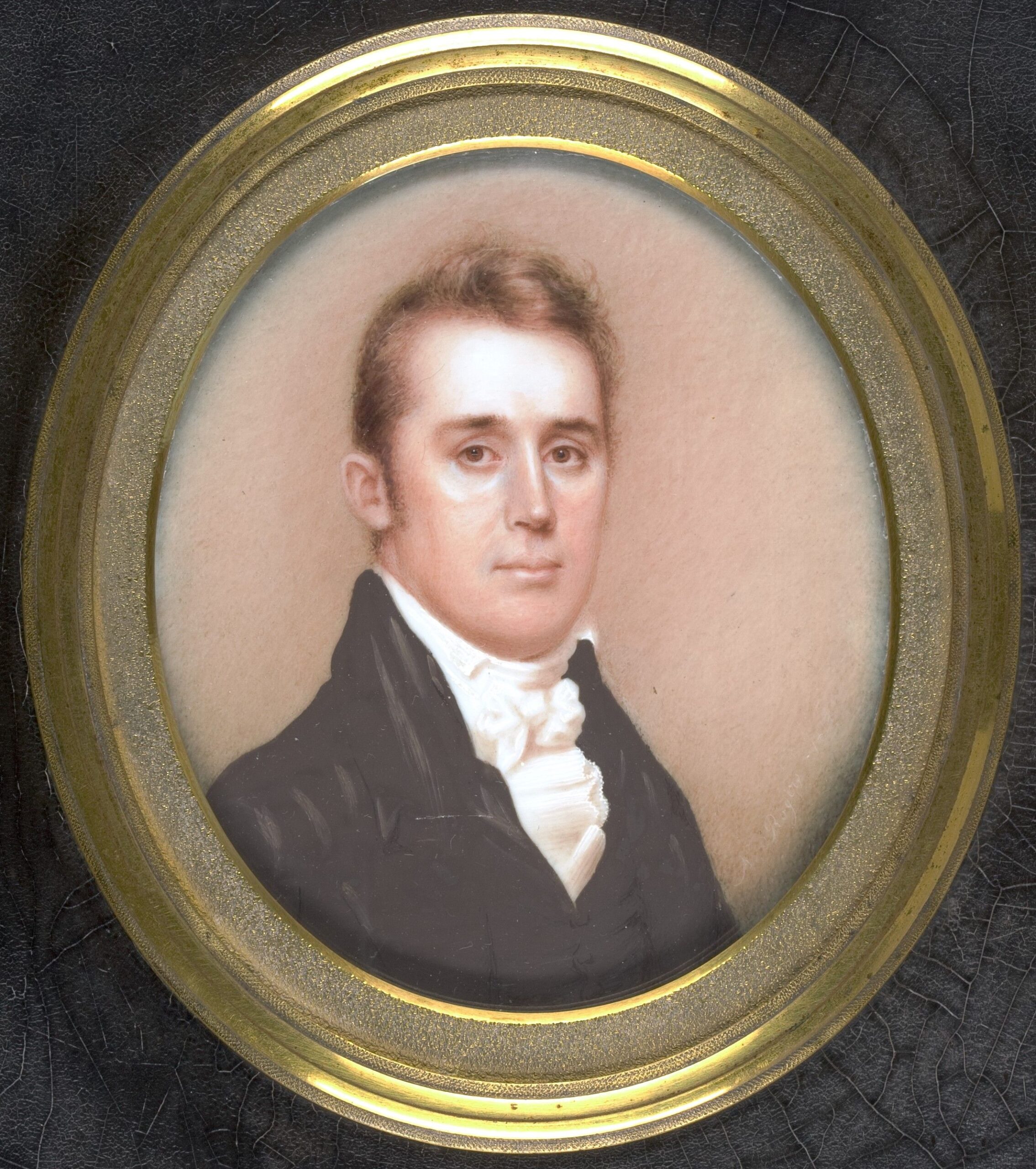Benjamin Silliman:
Father of American Science
Class of 1796; Professor of Chemistry, Geology, Mineralogy & Pharmacy; Founder of Yale Medical School; Founder of American Journal of Science; Founder of Sheffield Scientific School for Graduate Studies in Science; Professor Emeritus.
Benjamin Silliman
1779 – 1864
Class of 1796; Professor of Chemistry, Geology, Mineralogy & Pharmacy; Founder of Yale Medical School; Founder of American Journal of Science; Founder of Sheffield Scientific School for Graduate Studies in Science; Professor Emeritus.
Benjamin Silliman: Father of American Science
The year 1801 at Yale marked the arrival of a small group of freshmen who came with a set purpose. They decided to pray for the spiritual awakening of their fellow students and the faculty. Their prayers were answered with the revival of 1802 at Yale under President Timothy Dwight, defender of the Gospel against the “French Infidelity,” a deistic philosophy born during the French Revolution that had obscured the Christian foundations of the college. The revival brought quiet but genuine conversions to half of the college before the end of the year. This awakening made a lasting impact on many lives but especially on that of Benjamin Silliman, a recent graduate and then a tutor at Yale. He would some day be called the ‘Father of American Scientific Education’ and Silliman College bears his name today.
Although Silliman had been raised in a Christian home, his true conversion was marked by an evident change in attitude recorded in letters and journals. Before, he was chiefly concerned with his social position. He wrote to his mother, “I find no propensity in my system stronger than a wish to be highly respectable and respected in society. I must act in a particular sphere, and that sphere which is assigned me is the Law.” In a later letter to her, he is aware of his lack of conviction in regard to the faith, as he writes,”…I know not—when the awful truths of Christianity are announced from the desk, I do not always feel that interest which the subject ought to command.” After his conversion, but before his public confession of his faith, his surrender to God was clearly expressed in his journal, “…dispose of me according to thy own good pleasure; employ me in thy service; save me in thy own way….”
Two days later, at the suggestion of President Dwight, Yale created the professorship of chemistry and natural history and offered it to Silliman. Less than twenty-two years old, he found himself asked to abandon his advanced study of law and embark on a new profession, “preceded by a course of study and of preparation too, in a direction in which in Connecticut there was no precedent.” He wrote, “I was not elated by the appointment; but having youth, health, zeal, energy, and perseverance on my side, I did not, with God’s blessing, despair of success.”
Thus began Silliman’s life in science. He was the first to establish the studies of chemistry, mineralogy, and geology at Yale when these subjects were just emerging. In addition, he helped found the Medical School, launched the American Journal of Science (which was the first of its kind to establish communication among the scientific minds of the day), gave lectures in chemistry and geology to the public, made field surveys to consult mining operations, and established the Sheffield Scientific School for graduate studies in the sciences, the first of its kind in the U.S. His contributions extended to the arts and humanities as well. He helped found the Trumbull Art Gallery, helped establish the Department of Philosophy and the Arts (which became the Graduate School of Yale University), and the traveling diaries of his trips to Europe became guides for others.
For Silliman, science did not conflict with faith in the God of the Scriptures, but it all the more pointed to the Creator to whom he always gave the glory and honor. He felt, however, that although the physical world pointed to God and His power, an understanding of that could not provide full knowledge of God. “…I have also declared my belief that while natural religion stands as the basis of Revelation, consisting as it does of the facts and laws which form the domain of science, science has never revealed a system of mercy commensurate with the moral wants of man.” Silliman believed that not science but only God’s word could reveal God’s mercy. He wrote, “In Nature, in God’s creation, we discover only laws—laws of undeviating strictness, and sure penalties annexed for their violation. There is associated with natural laws no system of mercy; that dispensation is not revealed in Nature, and is contained in the Scriptures alone.”

“In Nature, in God’s creation, we discover only laws—laws of undeviating strictness, and sure penalties annexed for their violation. There is associated with natural laws no system of mercy; that dispensation is not revealed in Nature, and is contained in the Scriptures alone.”
Benjamin Silliman
Silliman adhered to this belief to the end of his life. He gave all the glory and honor to God for any of his life successes, and he did not trust in his own merits or understanding despite all the praise he received from men. He saw his deficiency before God and wholly leaned on Jesus for the salvation of his soul, which he deemed the greatest gain in life. At the age of eighty-four, a year before his death in 1864, he wrote,
“I am aware, blessed God, that my mind is dark and ignorant by nature; still, enough is brought to light in nature and revelation to justify our faith in what we cannot now understand; and what we know not now, we may know hereafter. My life has been prolonged to fourscore years and four. I trust, heavenly Father, that I am deeply grateful for this long life full of mercies, although very imperfectly requited to Thee by the obedience due from a humble being to my great benefactor. To recite my mercies would be to recount the story of my life…. While recounting my mercies, I would not forget my sins and follies. When I compare my heart and life, O Thou infinite triune God! with the purity and strictness of the holy law—with thy law which is all reasonable and right—I feel how unreliable must be my hopes of salvation upon the ground of personal merit. Merit! Although we may feel that we have been just and kind to our fellow-men, we can have none that can justify us in the sight of God—of a being of sinless perfection, of boundless power, of strict justice, but, happily for poor sinful human beings, of mercy also, overshadowing all his other perfections. We need not approach Thee simply with fear and trembling, but with deep humility, and humble confidence that Thou art both able and willing to save those who come to Thee with sincere penitence and sorrow for sin, and trusting in thine infinite mercy. The bruised reed Thou wilt not break, and the smoking flax Thou wilt not quench (Isaiah 42:3). Thou hast justified our hopes of salvation if we come unto Thee, trusting in the divine Saviour.”
Paulina Kim, Ezra Stiles ‘95
Quotations taken from Benjamin Silliman, by George P. Fisher, Charles Scribner & Co., 1866

